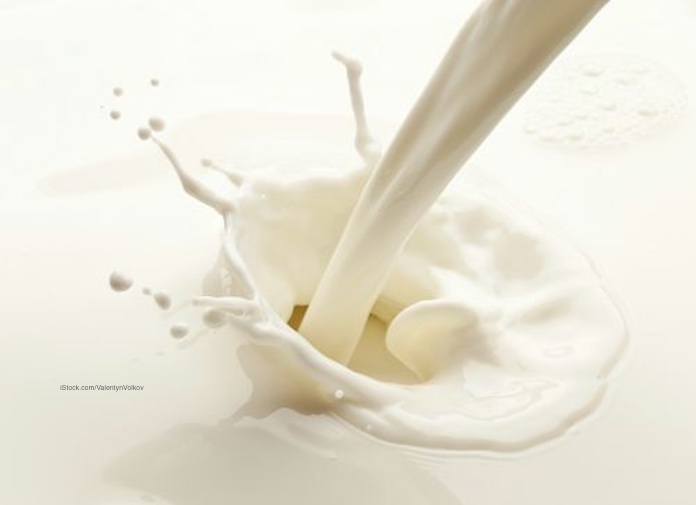Raw milk is not a substitute for powdered infant formula, according to experts at Cornell University. With many parents desperate for the formula to feed infants and children with special dietary needs after Abbott Nutrition’s plant in Sturgis, Michigan was shut down for Cronobacter contamination, there is a lot of bad advice popping up online. Parents are urged not to make homemade formula, which does not have the nutrition infants need. And never feed infants raw milk.

Raw milk can be, and has been, contaminated with pathogens that include E. coli O157:H7, Listeria monocytogenes, Campylobacter, Brucella, and Salmonella. In fact, while only 1% of consumers drink raw milk, raw milk causes 70% of milk outbreaks. Raw milk is especially risky when given to any person at high risk for food poisoning, which includes infants and anyone with chronic health conditions.
And goat’s milk is not better for babies than formula. This product does not have the amount of folate that infants need, and babies who are fed goat’s milk alone may have a higher level of anemia.
Anika Zuber Gianforte, Dairy Processing & Marketing Specialist at Corner, said, “As the infant formula shortage continues, parents in difficult positions are faced with deciding what the best alternative is for their child’s nutrition. It is critical that parents understand the dangers associated with the consumption of raw cow, goat, or sheep milk.
“Raw milk does not offer additional nutritional benefits, nor is it safe for infants to consume. Potentially deadly bacteria including E. coli, Salmonella, Listeria, and Campylobacter are commonly found in raw milk. Infants’ immune systems are not fully developed which puts them at an increased risk for developing serious illnesses as a result of consuming raw milk. Even raw milk from clean animals and farms can contain these harmful bacteria.
“It is also important to note that spoilage bacteria are not the same as disease-causing bacteria. Therefore, even if milk passes a ‘sniff test’, it does not mean the milk is safe to consume. Pasteurized milk goes through a heat treatment designed to kill these dangerous bacteria, and all pasteurized milk is tested for antibiotics.”
While raw milk is not a substitute for infant formula, parents can choose other brands of formula. If a child has special nutritional needs, it’s best to talk to your pediatrician about other sources. But when purchasing formula online, make sure that the formula is FDA-reviewed and be careful about buying this product from non-U.S. distributors.




